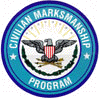
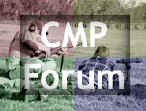
| We want your feedback! Please let us know what you think about TFS. Do you have an interesting story or article that you would like to share? If so, please let us know!
|
Reader Comments:
I use these articles in our high power clinics and have found them very helpful for both new shooters and reinforcement of the basics for the more experienced.
Thanks, Gary M.
Thanks for the great articles on the Carbine, Springfield, Garand matches. All the articles are interesting, but the Carbine, Springfield & Garand are my favorites.
Jim H.
The September-07 on line shooting tips by SSG Tobie Tomlinson, USAMU Service Rifle Team Member, is a great article. I have reproduced 15 copies of it to hand out and discuss to our “newbie” first year air rifle shooters on our high school JROTC Air Rifle Team. Come to think about it believe I’ll hand out a copy to my advance shooters as well. His explanations are simple to understand but rich in detail. Coupled with the sight pictures this article will go a long way towards helping all our JROTC shooters obtain better sight patterns. Keep up the great work. AND…..keep the articles like this coming.
Malcolm V.
CW2 (R), US Army
It seemed good to read the article on Infantry Trophy Match. As a shooter on the Marine Corp Team way back in 1967 I participated in the Match. We were the second team for the Marines but placed second overall. One of our shooters forgot to put the windage on his rifle. I enjoyed shooting the M-1 and M-14 at Camp Perry and always wanted to go back but never seemed to find the time. The top over all shooter at that time was my team mate Lt. Bowen. I remember some of the team members carrying him from the 600 yd line back to the rest of us. It was a great time in my life and will never forget it. Thanks again for the article.
Mike A.
Thanks for the great series of articles from the USAMU – they are very readable, and usable!
Tom, AZ
Great articles. Great to identify those who are participating as well as those who are working behind the scenes to make the whole of the National Matches run so well.
David D.
Boxford, MA
This is a special note just for my friends at the CMP, I want to thank you all for your hard work and attention to details, it's a great program!
"You help our shooting dreams come true!"
Best Regards,
Tony M.
CMP,
Your review of the CMP EIC brought back good memories. My son and I usually participate in the rifle event. This was the first time we participated in the pistol event. Our experience was positive and we have decided to come back and do it again next year!
DAVE J. H.
I don't think that I have taken the time lately to thank you and the CMP for your faithfulness in keeping me updated on all of the CMP news. I thank you and your staff very much for the fine job you are all doing.
Many thanks, and keep up the great work!
Pete
Your article titled "Rifle Cleaning and Maintenance" was so timely. I am a novice rifle shooter, and the information is just what I needed. The owner's manual that came with my rifle is far too sketchy and assumes the new owner is experienced. This is concise yet detailed enough to make me comfortable cleaning my firearm.
Regards,
Jane W.
Cleaning a rifle or handgun is not a lot of fun. The article on cleaning the rifle met the K.I.S.S. principle that I can relate to and understand. To the point.
Arthur S.
Thank you for this excellent e-newsletter. The links and information are great.
Sincerely,
John B.
|
|
|
 |

What Sight Picture Is Best For You?
By SSG Tobie Tomlinson, USAMU Service Rifle Team Member
|
|
Which is correct? There are a myriad of sight picture options that shooters have used to great effect over the years. The sight picture that allows you to consistently shoot the smallest group, with a minimal shift in zeros, is the correct one. In the next few paragraphs we will explore a few of the more commonly used sight picture options. Remember, for any shooter to be successful, consistent sight picture must be complemented by front sight focus and sight alignment.
|
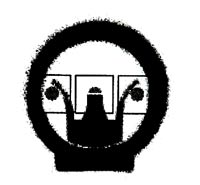 |
|
Center Hold
|
Center Hold – With a center hold the front sight placed directly in the center of the target. A center hold is great in different light conditions. On a bright day the target appears small. On a dark day the target appears large. In these different light conditions the center of the target is always in the center. A shooter who has problems with elevation shots in various light conditions may benefit from a center hold.
|
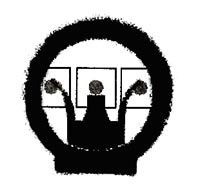 |
|
6 O'clock Hold
|
6 O’clock – With the 6 O’clock hold the front sight is placed at the bottom of the aiming black. For many shooters, this hold allows precision placement of the front sight. The ability to accurately call your shots will come with time and experience. Light changes, which alter the appearance of the target, may affect shooters who utilize the 6 O’clock hold.
|
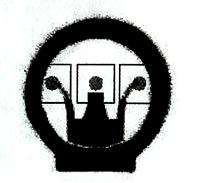 |
|
Sub 6 Hold
|
Sub 6 – The sub 6 is just like the 6 O’clock hold, only there is a small line of white between the front sight and the aiming black. Many shooters have a problem determining the exact 6 O’clock position with their front sight, but by using a sub 6 or line of white they may be able to better estimate their hold.
|
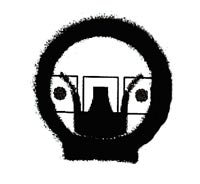 |
|
Frame Hold
|
Frame Hold – With the frame hold, just like with the other holds, the front sight is in the center of the rear sight. The front sight can then be placed at the 6 or 12 O’clock position on the frame when there is no visible aiming point. This hold is typically reserved for foul weather and poor light conditions. By placing the front sight at the top or bottom of the frame, a shooter may hold better when there is little target to see. It can be difficult to hold a tight group this way, but it may add more hits in bad conditions. This technique is normally applied when shooting longer ranges such 600 or 1000 yards.
Along with the sight picture options described above, here are some general
aiming guidelines for effective shooting:
-
With all holds you must be able to see the front sight, the crisp top-edge of the front sight. The target image is second. Most people want to see the target clearly. If they do see the target clearly they probably cannot see
the front sight well. You only need to see down range well enough to see your number board to eliminate the possibility of crossfiring.
-
Sight clarity can be improved with front sight size changes. A wide front sight works well with most shooters. Your vision is drawn to a wider sight and away from the target. Rear sight size changes can add to the clarity by allowing more or less light in.
-
Eye relief is the distance between your eye and the rear sight. Your eye relief is different in each position. Any changes in sight sizes must be tried in all positions. Your eye relief from shot to shot must be consistent to fire small groups.
-
You should not over hold. If you aim too long you will fatigue your eyes. Use your first sight picture. Whenever you stare at a bright object, such as a target on a sunny day, the image is being burnt temporally into your eye. Try staring at a bright object for approximately 10 seconds and then close your eyes.
-
To improve sight pictures, you may need corrected vision. The most common
vision corrections are glasses, contact lenses, and eye surgery. You may also use corrective lenses in your rear sight. I have had great success with this.
-
A way to increase your concentration on the sight is to use a blinder. By relaxing the non-firing eye and lowering the light from
sides, your firing eye will be more relaxed. Besides who wants to see the guy moving around next to them? Also, wear a hat.
-
You must be able to accurately call your shots. This skill can be enhanced by focusing on the front sight and paying careful attention to your sight alignment.
Whichever sight picture you use, consistency is the key. Good luck, and good shooting!
|
The USAMU Service Rifle Team is also answering your
questions pertaining to Service Rifle Shooting including topics such as
Equipment and Ammunition, Shooting Positions and Shooting Techniques and
Tactics. Go to
http://www.odcmp.com/Competitions/USAMU/ShootingTips.htm
to view the latest questions and answers. If you have a question you
would like to ask, email USAMU@odcmp.com. |
NEXT
ARTICLE |
|
|

